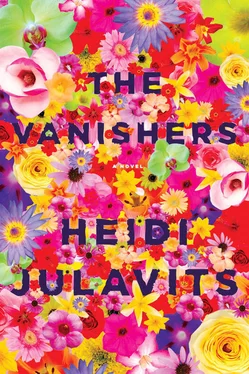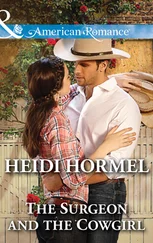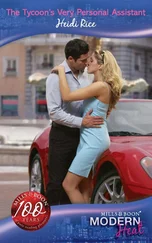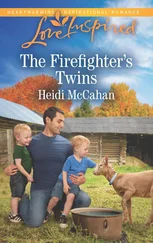When Kincaid started the service, Alwyn said, each family received a detailed personal letter explaining the loved one’s reasons for vanishing. Unfortunately these letters were often mistaken for suicide notes, which led to confusion with the police and the morgues.
“They might as well be suicide notes,” I said.
“How so?”
“To the survivors,” I said, “they amount to the same thing.”
“Technically there are no survivors,” Alwyn corrected. “Nobody died.”
“To the family members, then,” I said. “These films are essentially suicide notes.”
“Interesting,” she said. “So you’re saying you see no difference between your mother being dead and your mother being alive and living somewhere else?”
I stared at her. When she claimed that she and Colophon knew everything about me, she meant it.
“My mother didn’t leave a note,” I said.
“We’re aware,” Alwyn said.
“Of course I see a difference,” I mumbled.
Kincaid, she continued, hired video artists to shoot footage of the vanishers. The subsequent collection of vanishing films was stored at the TK Ltd. warehouse in Cincinnati so that family members, friends, acquaintances could view the testimonies of their vanished beloveds. Kincaid described his warehouse as a living mortuary, a hopeful grief museum.
“Colophon decided that the films could serve a wider population — that the viewing of these films by people who’d lost a loved one to actual death or to suicide, could be therapeutic. Which is how he came up with the idea for the Lost Film Conference.”
“That’s kind of a misnomer,” I said. “The films aren’t lost. And neither are the people.”
“The attendees are metaphorically lost, by and large. It’s not a complete misnomer. You saw the weepers in the lobby. Most of them had loved ones who were killed on 9/11. The weepers hold out some hope that their husband or daughter made it out of the buildings, realized they could disappear without a trace, caught a bus west or north or south, and started a new life.”
I still struggled to understand how this qualified as a preferable scenario.
Alwyn mentioned, in an offhanded way, that she herself had recently vanished. She complained about her mother and stepfather, neither of whom had gone to see her vanishing film and who were wasting thousands of dollars each month on a private detective.
“You were suicidal?” I said. I tried to spot the talent in her — because it was a talent, self-killing. I didn’t possess it. I’d tried to find evidence of my mother’s talent in photographs, but anything can appear meaningful at a backward glance: Hands clamped beneath opposing armpits on a warm spring day. Lips pinched shut against (it can appear, in retrospect) the release of a nuclear misery. The innocence of every gesture read as a clue to a future murder no one foresaw.
But Alwyn — I couldn’t see the killer in her. She was haphazard, missing buttons, one shoulder always half out of her cardigan and roots that grew pale, not dark.
Even then: Alwyn’s story did not add up.
“If they’d bother to see my film,” Alwyn said, “they’d respect my reasons for not wanting to be found, they’d stop trying to find me.”
“But what if a person changes her mind after she vanishes?” I said.
“A very small percentage of people unvanish themselves after a few years. But not the majority. Though quite a lot of people choose to re vanish. That’s common. Because disambiguation recurs, after a time. Your life becomes your life, and you need to leave it again.”
This seemed less a comforting solution than a stressful warding off of the inevitable. I imagined the dread and hopelessness suffered by the person who’d vanished so many times that there was no place else to go. She was known to everyone. It was a fear not unlike the one suffered by Blanche, who took medication to combat her mood swings. After a year or two the drug stopped working, as though her body had figured out the trick being played upon it, and formulated a runaround. She’d visit her doctor, who’d prescribe a new drug, and she’d return home to await its failure. Her body registered cures as invaders, as an enemy to defeat. At some point there would be no more cures. Her body would be too familiar, or would know too much.
“Too bad,” Alwyn said, “there was an unvanishing panel this morning you might have enjoyed.”
She flapped a hand toward the conference program. Most of the events were unmoderated screenings, for example “Selected Vanishing Films January 1, 2007–August 31, 2008,” interspersed by panel screenings with titles such as “The Therapeutic Value of Witnessing” and “The Trauma Survivor as Cultural Hero.”
“I’d like to see one of these other panels,” I said.
“Now?” Alwyn asked. “I was going to shower.”
I recalled that a person with a maybe-concussion shouldn’t shower alone. Then I recalled that it wasn’t people with concussions but people prone to seizures. I hadn’t been allowed to shower alone for the month following my seizure at Madame Ackermann’s birthday party. Pam had sat on my toilet reading her course pack whenever I showered, so close to my naked body that I could smell her highlighter.
My phone alarm beeped, reminding me it was time to take my 6 p.m. pills. Also it reminded me: I had dinner plans with my father and Blanche.
“I’ve got to get going,” I said.
“But you need to meet Colophon,” Alwyn said. She sounded quite desperate. “He needs to tell you about the job.”
“I can’t,” I said. “I have plans tonight.”
“How about tomorrow night?” she countered. “We’ll rendezvous in the hotel bar. They serve excellent whiskey sours.”
“That would be nice,” I said.
I pulled on my coat, shouldered my bag. I shook Alwyn’s hand and promised not to forget our meeting.
“Looking forward to it,” she said.
“Me too,” I said, my eyelid pulsing its silent alarm. What my mind no longer foresaw, my body did.

Back on the street, the temperature had dropped with the sun, but there was no wind, and walking down Eighth Avenue felt akin to being cryo-frozen, a gradual halting of bodily time. When I reached the Japanese restaurant Blanche had chosen I was pleasantly all-over numbed, a sensation I reinforced by knocking back, at the velveteen-tarped entryway, a pair of Vicodins.
“Julia!” said Blanche. Her yellow hair had grayed at the temples, lending her a punkishly off-kilter vibe that interacted really excellently, I thought, with her Icelandic sweater and her clogs.
Blanche stood and hugged me. And hugged me and hugged me. In contrast to my father’s duck-and-cover personality, Blanche was an energetic wrangler of other people’s messes, capable of dusting and watering the elephants that inhabited the many rooms of our farmhouse in Monmouth, the one in which my mother had killed herself, the one my father, for reasons both evident and bewildering, refused to sell. Once he married Blanche, my father, with relief, ceded to her female expertise the duty of my physical and emotional upbringing, and thus she’d guided me, from the age of twelve, through a syllabus that focused on Trixie Belden mysteries, the New England arts of wood stacking, linoleum block printing, and chowder assembly, and the poetry of Sylvia Plath. She insisted that she and I memorize Plath’s Ariel ; the poems, she said, might help me understand why my mother had done what she’d done. They hadn’t, but I’d liked them very much, and they’d provided for Blanche and me a form of jokey intimate patter, a coded way to bitch, in his presence, about my father’s occasional fits of chauvinistic pique, for example when he came home to find Blanche and I wielding Exacto knives over a pile of concrete-colored lino tiles, arguing over the most appropriately nondenominational holiday card image, the dinner chicken unroasted, the house a booked and scarved and sweatered mess.
Читать дальше













